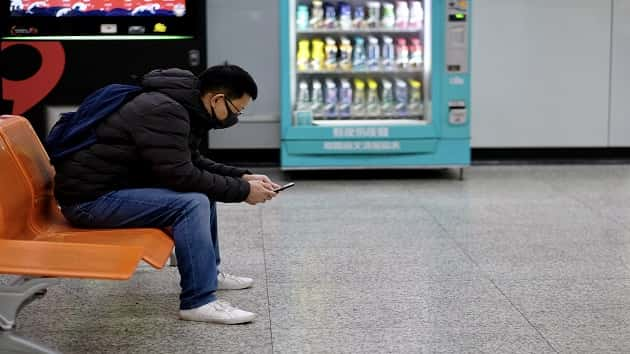
iStock/Robert Wei
iStock/Robert Wei(NEW YORK) — As the novel coronavirus continues to sweep across much of mainland China, tech companies are taking notice of the information — and disinformation — that the outbreak is generating online.
Facebook says they’re going to “remove content with false claims or conspiracy theories that have been flagged by leading global health organizations.” The company also says they’re going to start notifying users who share misinformation that the content has been fact-checked. Facebook uses third-party content moderators to fact-check sources.
Twitter is rolling out new tools to combat the spread of false or misleading information on its platform. In a statement, the company said it’s “not seeing any coordinated attempts to spread disinformation,” but even so, it’s modifying its search functionality so that sources Twitter deems “credible” appear first. In countries with several reported cases of the disease, a search for “coronavirus” on Twitter will present users with a “Know The Facts” tab, which features links to resources from the Centers for Disease Control and Prevention.
It’s not just social media sites that are keeping a close eye on the online conversation around the coronavirus.
Metabiota is a biotech company that tracks the spread of diseases by monitoring everything from media reports to flight data. CEO Nita Madhav says they use artificial intelligence as well as a team of analysts to draw conclusions about how people are reacting to the disease.
“What they’re doing is actually compiling that information — verifying it, validating it, cross checking it — to really be able to get the best timeline of what’s going on during the outbreak, and to corroborate which sources are providing the most reliable information,” Madhav said.
Madhav says U.S. intelligence agencies and the Defense Department use Metabiota’s findings to protect medical personel stationed in hot zones, or reallocate resources to areas that are bearing the brunt of the outbreak. Metabiota also uses the data to determine a “sentiment score,” which is intended to assess potential human and economic losses by measuring the public’s level of anxiety. The company does this by considering factors like an illness’ lethality, and the seriousness of its symptoms.
“We actually went out and did surveys among the general population, and we presented them with a list of symptoms like coughing, or hemorrhagic symptoms like you might see with Ebola. And we said, ‘well, which one do you think is the scariest?'” she explained.
Madhav says that while some of the results are unsurprising — Ebola does produce more frightening symptoms than the common cold, after all — the sentiment score does provide valuable information about how people behave during an epidemic.
“What we’ve found is that fear can be a significant driver to the economic losses that happen mainly because when people are afraid, they’re more likely to avoid areas, or they’re not going to go out to the shopping mall, or they’re not going to go to that hotel on that trip that they had planned,” she said, adding that the novel coronavirus has produced a similar, albeit lower, sentiment score to the outbreak of SARS in the early 2000s.
“This particular coronavirus actually fits within a lot of these categories on the scarier end of the spectrum.”
As for what’s next, Madhav says their work will transition from evaluating the public reaction to the disease, into examining its spread around the globe.
“Now as, I think, the outbreak continues, there’s more modeling around trying to understand the size — the true size — of the epidemic, and how long it will last,” she said, explaining the company’s future plans.
Earlier this month the World Health Organization declared the outbreak of coronavirus a global health emergency. It’s responsible for 426 deaths, and more than twenty thousand infections globally.
Copyright © 2020, ABC Audio. All rights reserved.